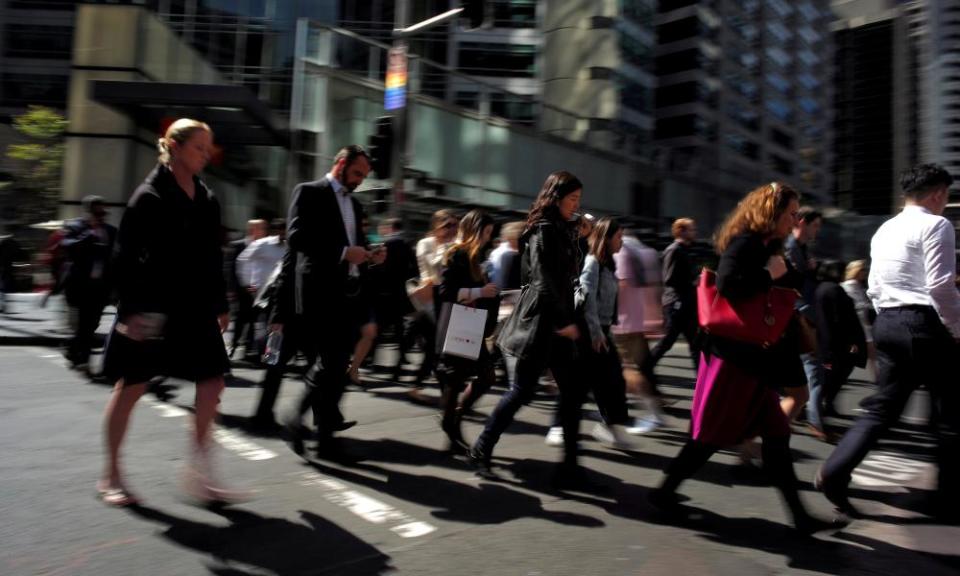IMF says wages will be ‘slow to rise’ but low interest rates will last for years

The International Monetary Fund has said the conditions seem right for a pickup in growth in Australia but warned it would only be modest, with record-low wage growth weighing on household incomes.
It has also predicted Australia’s ultra-low interest rate environment will persist for years, saying a sustained rise in inflation will come about only when the economy has been at full employment “for some time”.
That is the preliminary verdict from International Monetary Fund staff who have just completed an official visit to Australia.
They considered the health of the housing market and found the market was expected to cool in coming months but imbalances – such as poor housing affordability and household debt vulnerabilities – were “unlikely to be corrected soon”.
The IMF verdict came the same day as Jonathan Kearns, the Reserve Bank’s head of financial stability, noted in a speech on Australia’s housing market that house prices in Australia had risen by two-thirds since 2009, with growth of housing credit outpacing incomes.
He said Australians need not worry about negative impacts from foreigners buying residential property, because purchases by foreign buyers “do not, on the whole, reduce the supply of dwellings available to local residents”.
“In fact, [they] may actually contribute to expansion of the housing stock,” he said.
The IMF has noted that the Turnbull government’s plan to return the budget to surplus by 2020-21 was predicated on a “rapid rebound” of nominal GDP in the next few years.
Deloitte Access Economics warned earlier this month that budget plan was unrealistic, because it was built on the assumption that 44% of the estimated increase in national income over the next four years would be collected in federal taxes – a record-high share.
The Deloitte report followed a separate report from the Parliamentary Budget Office last month that found the government’s plan to return the budget to surplus was heavily reliant on personal tax increases across every income bracket, with the largest tax increase to hit middle-income earners.
It said the tax hikes reflected a seismic shift in the taxation burden from businesses to individuals. The personal tax increases are necessary to compensate for the government’s controversial $65.4bn company tax cuts.
The IMF has supported the Turnbull government’s call for greater corporate and personal income tax cuts, as part of a larger plan for tax reform.
It said Australia’s state governments should abolish their stamp duty tax regimes and replace them with broad-based land taxes, such as the new land tax regime in the Australian Capital Territory.
It said “significant” corporate tax cuts in other large advanced economies could encourage similar tax cuts here, because they would have “capital flow implications of potential concern for Australia”.
The IMF staff said conditions were in place for a pickup in economic growth to above-trend rates in Australia, reflecting a stronger global outlook, recent stronger employment growth and a stronger contribution from infrastructure investment.
“[But] the pickup in growth is likely to be modest, while inflation and wages will be slow to rise,” they said. “With stronger momentum in domestic demand and inflation close to the midpoint of the [RBA’s] target range not yet secured, continued macroeconomic policy support will remain essential.
“With the cash rate at 1.5%, monetary policy remains appropriately accommodative.
“With Australia’s recovery lagging that of other major advanced economies, monetary policy should remain firmly focused on ensuring stronger sustained momentum in domestic demand and inflation.”

 Yahoo Finance
Yahoo Finance 